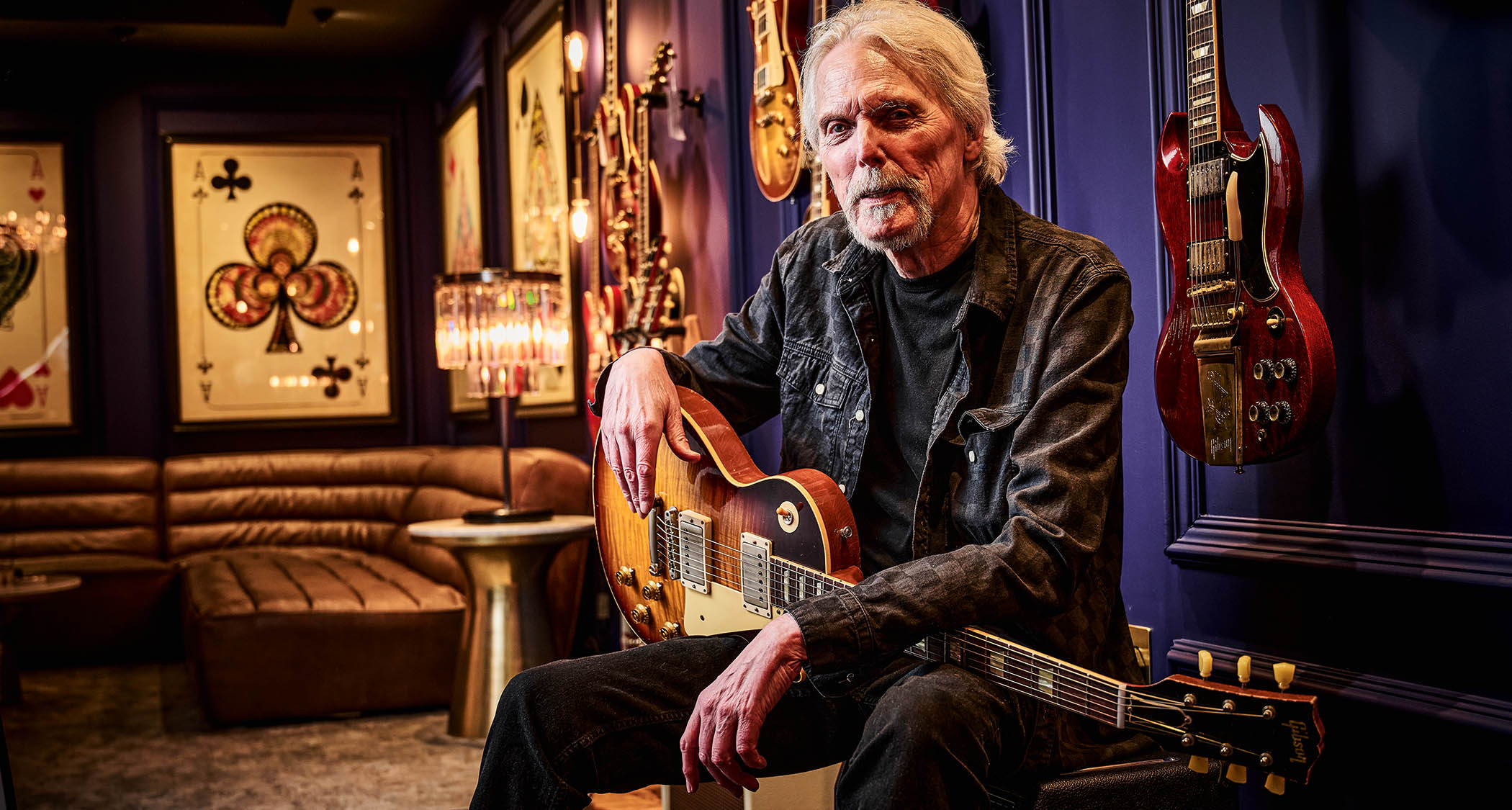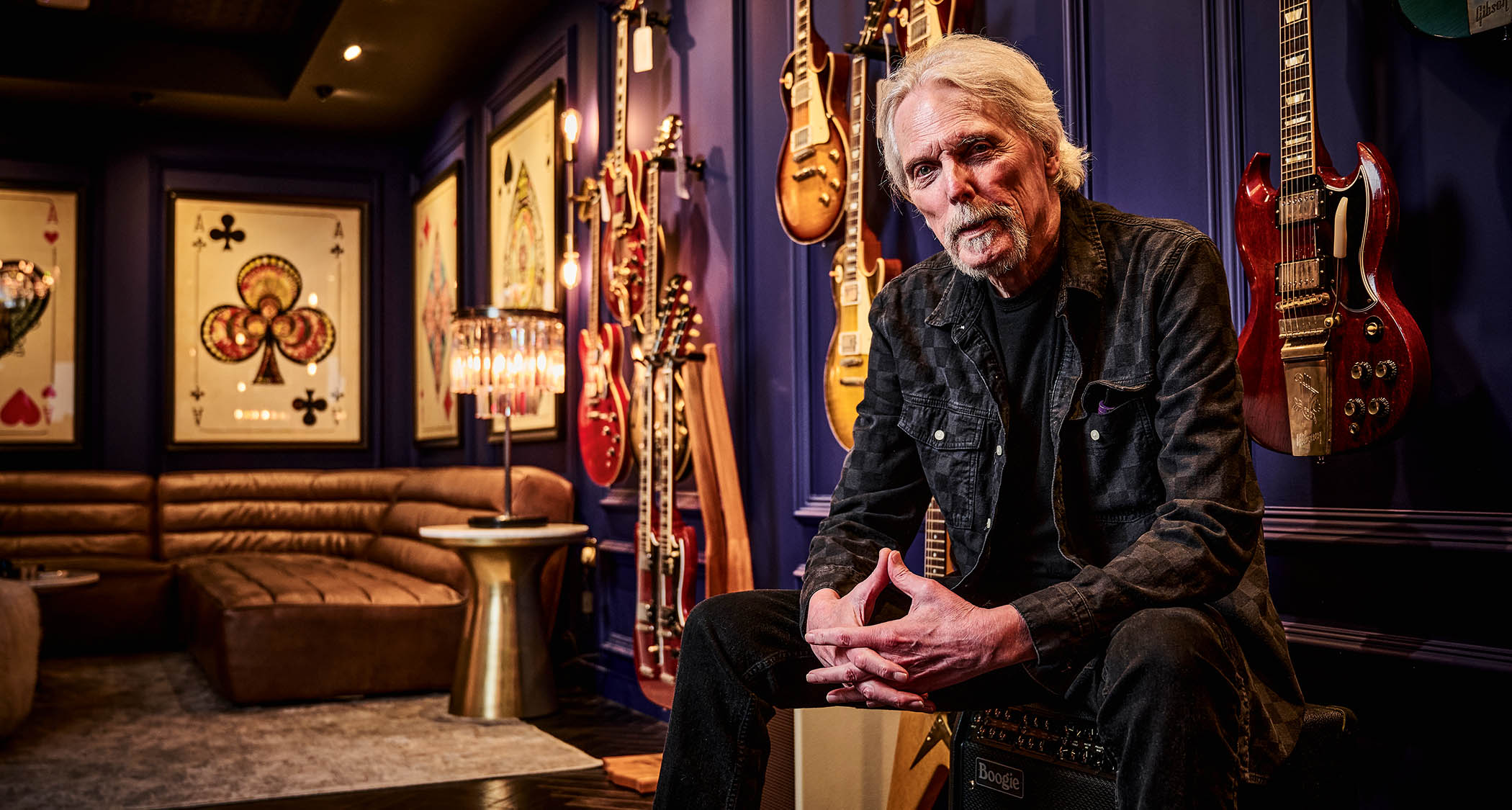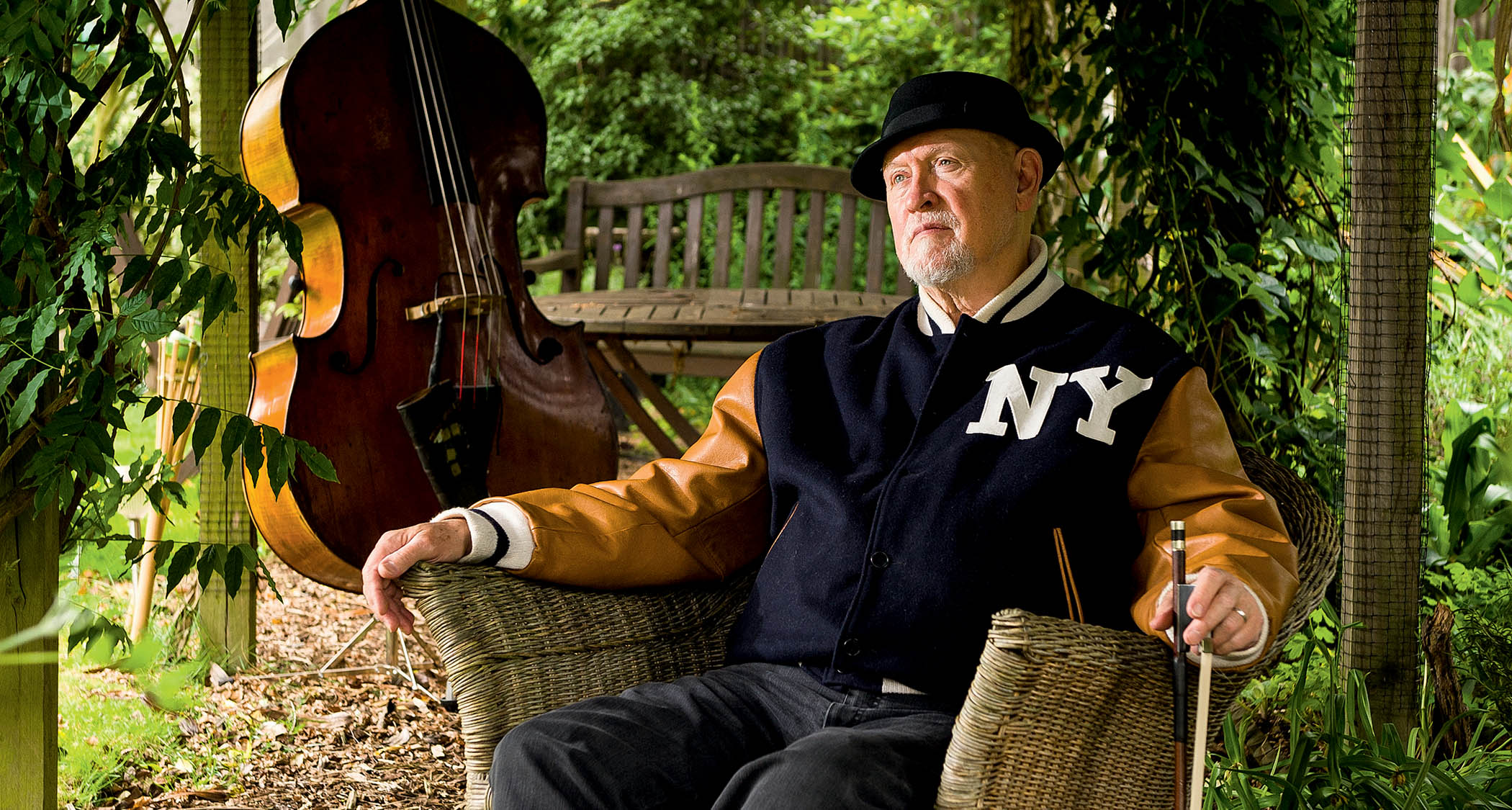“I had no idea who Thin Lizzy was. I’d never seen a picture of these guys, never heard their music. But I was told they’d had a hit with Whiskey in the Jar…’” Scott Gorham on his Thin Lizzy audition – and the moment The Boys Are Back in Town “exploded”
Brian Robertson might have given Gorham the coldest of welcomes at his audition but the pair soon formed one of rock's most iconic guitar partnerships. Here, Gorham looks back on their chemistry and the Les Pauls behind his Lizzy sound

Scott Gorham is in his element. Holding court at London’s Gibson Garage, surrounded by the tools of his half-century trade, with a wicked-uncle twinkle and an e-cigarette on the side that represents his last unkicked habit, the Thin Lizzy veteran remains the very best company in rock ’n’ roll.
You sense it’s a relief for Gorham to be back on home turf, having struggled in recent weeks with a nasty case of imposter syndrome. The official reason for our interview is the 73-year-old’s unveiling of his historic artwork: a series of wild, fantastical pencil sketches that he worked up while on tour with Lizzy, then hid under the bed for decades. But even after the successful launch of his collection at the Karma Sanctum Soho Hotel in April, the guitarist still flinches at the ‘A’ word.
“I can’t call myself an ‘artist’,” squirms Gorham. “I figure there’s all these brilliant men and women who were at art college for years – and here comes some slob like myself and I just step right into it. I feel really guilty with that.”
Music, though, he can talk about all day. The band that made his name in the mid-’70s now moves at a more leisurely pace, eschewing studio albums since the death of talismanic frontman Phil Lynott in 1986, while touring sporadically with a patchwork quilt of members. But all it takes is the click of a dictaphone to send the guitarist rifling through his memory banks for the best war stories in the business.
You joined Thin Lizzy alongside Brian Robertson in 1974, making it a twin-guitar band for the first time. Thinking back, what was the audition like?
“I had no idea who Thin Lizzy was. I’d never seen a picture of these guys, never heard any of their music. But I was told they’d had a hit with Whiskey In The Jar [1972] and asked if I wanted to put my name forward. ‘Hell, yeah. I got 30 more days left on my visa then I gotta go home.’
“The audition was at a dinner club. Phil stuck out that bear paw of his and shook my hand. We walk in and Phil says, ‘Hey guys, this is Scott.’ Robbo just looked up and went, ‘Yeah, okay.’ And I thought, ‘Oh, let me warm my hands on that welcome.’ But the reason they did that was because they’d already auditioned 25 guitar players. And here comes number 26, and guess what – he’s a fucking Yank.”
All the latest guitar news, interviews, lessons, reviews, deals and more, direct to your inbox!
How did that first meeting with Robbo progress?
“Phil said, ‘So, Robbo, teach Scott blah-blah-blah.’ He’d flash these chords really quick, and I’d say, ‘Could you slow it down a bit?’ Then it was 1-2-3-4, and I’m looking at Robbo’s hands and my changes were just a fraction later than his. Then he’d say, ‘Now you take the lead.’ It was chaos, really.
“But Robbo was just a great player, light years better than anybody I’d ever played with at the time. He just seemed to have his shit together. And, boy, he had the ego to go along with it: ‘I always knew I was gonna be in Lizzy…’
I couldn’t get the word ‘yes’ out quick enough. Hearing how talented all these guys were, you’d be crazy not to want to get in this thing called Thin Lizzy
“Phil took my number, on this tiny little piece of paper. And I thought, ‘Great, he’s not gonna lose that, is he?’ I’m thinking, ‘I probably did pretty shitty.’ But that night, Phil gave me a call and said, ‘We’ve all been sitting around listening to the tapes.’ I went, ‘Tapes? What tapes?’ They’d been recording [my audition] the whole time. I had no idea. Probably pretty good that they didn’t say anything.
“And Phil said, ‘We all agree that you’re the guy. What do you say?’ I couldn’t get the word ‘yes’ out quick enough. Hearing how talented all these guys were, you’d be crazy not to want to get in this thing called Thin Lizzy.”
How fast did you establish the guitar dynamic with Robbo?
“I can’t remember it taking a long time. There were certain songs where we’d be like, ‘Well, maybe you take the second lead.’ Or, if it was a song that Robbo didn’t like, he’d say, ‘Yeah, you take the lead on that one.’ So it worked out like that until we started to feel each other out. We started to hang out, go out for drinks, make each other laugh, all that. We became a lot looser and closer at the same time.
“Still, to this day, I love the guy. I was devastated when he got kicked out. I kept trying to get him back in the band, and I finally did talk Phil into it, and I said, ‘Brian, for fuck’s sake, just keep your goddamn mouth shut. Every time you open it, man, you get yourself in trouble.’ He’d say, ‘Yeah, yeah, yeah.’ Then he’d do it again. But the great thing about Phil was that it was always my decision who was gonna be the next guy.”
Whiskey In The Jar had been a hit, but success wasn’t a done deal at that point, was it?
“Yeah, we had nothing. Back then, you got your three-album deal, and if you hadn’t made an impression by that time, they’re warming up the car for you. We knew the pressure was really on. Phil brought in this song, which at that point was just called The Boy Is Back or something. And the lyrics were great, but it was kind of a bland song, just chord after chord.
“When we were making up the list for the Jailbreak album [1976], it was like, ‘Okay, these are the nine songs, and those over there we’re not gonna do.’ But one of the managers came down to hear what we’d done. And he said, ‘How about The Boys Are Back? Why have you discarded that one? I think you oughta include it.’
That Deluxe had a thinner sound... I just wish it had some more guts, a little more bottom-end, some more sting
“So that’s when Brian and I went to town on it. Phil was going, ‘You know, there’s a huge gap in between these lyrics. We gotta do something musical in there. Something like doo-dah-doo-dah.’ And I was like, ‘Really? Doo-dah-doo-dah?’ And I was like, ‘Well, how about [sings classic guitar refrain].’ And Robbo put the harmony on.
“And it was just like, ‘Wow.’ All of a sudden, that song exploded. I wouldn’t say it was one of our favourite songs, but now we could see it was worth something. And we did the ascending line kind of deal at the end – that was the icing on the cake.”

Was it an easy decision to release The Boys Are Back In Town as the first single? Or were there other contenders in the running?
“With Nightlife [1974] and Fighting [1975], we picked the singles and they did shit. So this time we’re going, ‘Well, obviously, we’re crap at picking the singles out, so we’re gonna let anybody else do it.’
“We were on tour in America, and in Louisville, Kentucky, there were two disc jockeys that fell in love with The Boys Are Back In Town and played it to death, at least twice an hour. That song just spread all through America.”
If you’re a wallflower, nothing’s gonna happen. To be any kind of success, you have to be the guy that takes three giant steps to the front of the stage.
In the early years you played a Les Paul Deluxe with mini-humbuckers – something of a budget model.
“Well, it was because I had to buy my own guitars. And when you’re only earning £30 a week, it gets kind of expensive, right? And I liked that guitar. I knew it didn’t have the sound Robbo had because he’s got the big humbuckers, all that sweet sustain. That Deluxe had a thinner sound. And I loved the feel of that guitar. The way it looked, the way it felt, the way it played – I just wish it had some more guts, a little more bottom-end, some more sting. As soon as I was able to, I got my ’57.”
How did that ’57 Les Paul come into the frame?
“Gary [Moore] was in the band, so it was probably ’77 or ’78. We were in Boston, and this vintage guitar dealer comes in and lays five cases down, flips all the lids. I went immediately to that one. It’s the Holy Grail, right? He says, ‘It’s 2,300 bucks.’ I’d never heard of a guitar being that expensive. So I play it, and it sounds great, feels great.
“I look at Phil and he’s going, ‘Yeah, man.’ I got on the mic to our sound guy: ‘Hey, Pete, what do you think?’ And all he said was: ‘Buy it.’ So I had no negotiating room at all now. You wanted someone to go, ‘Ah, I don’t know.’ But they were just saying, ‘Buy it!’ So I was kind of stuck on the $2,300.”
How did it work out with that guitar, then?
“I played that ’57 for a month in the States. We get back to Heathrow and the customs guy has all our cases out, with the lids flipped up. And he went straight for that Les Paul. He says, ‘What a beautiful guitar – how much did you pay for it?’ I said, ‘$2,300.’
“He goes, ‘Really? On the carnet here it says $600.’ He closes the lid – whack! ‘That’s my guitar now.’ So we had to go to court, right there at Heathrow. I didn’t even know they had a court. A guy comes in, he’s got the black robe on, and he goes, ‘Well, Mr Gorham, we find you guilty – and the fine is the price of the guitar, plus £750 for breaking the law.’”
You’re reticent about showcasing your art. In the early years of Lizzy, did you feel the same way about music?
“Oh no. I was all in. ‘Let’s make the album, do all the fucking interviews, get it out there.’ If you’re a wallflower, nothing’s gonna happen. To be any kind of success, you have to be the guy that takes three giant steps to the front of the stage.
“It sounds like an ego thing, but, to me, you have to think of yourself as an important cog in the machine, and that machine can’t exist without you. Whether that’s true or not is a whole other subject. But that’s how you have to think.”
And with music, everyone out there has an opinion…
“Right. And that’s where you’ve gotta grow thick skin. That’s why I stopped reading reviews decades ago. Because it’d be ‘great, great, great, shit’. And it’s the ‘shit’ you remember. And it destroys you. So I was like, ‘I’m not even gonna read these. Just give me a quick overview…!’”
Henry Yates is a freelance journalist who has written about music for titles including The Guardian, Telegraph, NME, Classic Rock, Guitarist, Total Guitar and Metal Hammer. He is the author of Walter Trout's official biography, Rescued From Reality, a talking head on Times Radio and an interviewer who has spoken to Brian May, Jimmy Page, Ozzy Osbourne, Ronnie Wood, Dave Grohl and many more. As a guitarist with three decades' experience, he mostly plays a Fender Telecaster and Gibson Les Paul.





